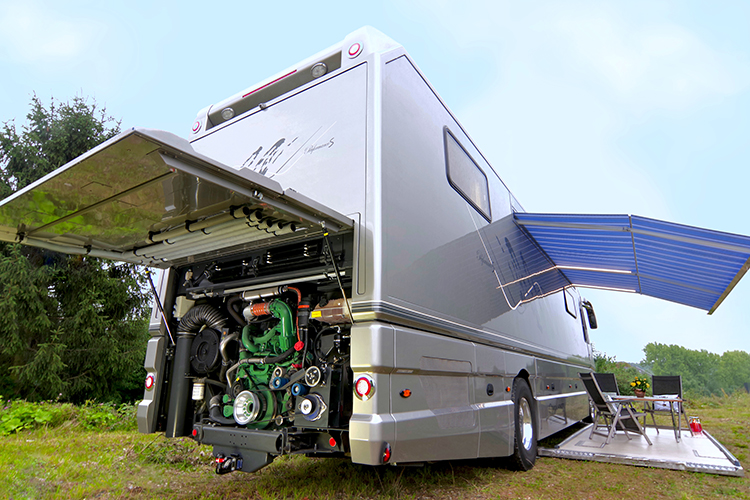
When it comes to embarking on exciting adventures and exploring the great outdoors, few things offer the freedom and flexibility of an RV (recreational vehicle). Whether you’re a seasoned traveler or new to the RV lifestyle, understanding the cost factors involved is crucial for planning your journey effectively. In this comprehensive guide, we will delve into the various aspects that influence RV pricing, helping you gain insights and make informed decisions.
Types of RVs and Their Price Range
RVs come in a variety of shapes, sizes, and features, each with its own price range. The three main types are motorhomes, travel trailers, and camper vans.
Motorhomes
Motorhomes are self-contained units that combine both living quarters and a motorized chassis. They offer the highest level of comfort and convenience. Motorhomes are further classified into three classes: Class A, Class B, and Class C.
Class A Motorhomes
Class A motorhomes are the epitome of luxury and spaciousness. These RVs resemble buses and offer all the amenities of a home on wheels. They range in price from $100,000 to several million dollars, depending on factors such as brand, size, and customization options.
Class B Motorhomes (Camper Vans)
Class B motorhomes, also known as camper vans, are compact and versatile. They are built on a van chassis and offer excellent maneuverability. Class B motorhomes typically range in price from $50,000 to $150,000, depending on the features and customization.
Class C Motorhomes
Class C motorhomes strike a balance between Class A and Class B. They have a distinctive cab-over design and offer ample living space. Class C motorhomes usually range in price from $60,000 to $200,000, depending on the brand, size, and amenities.
Travel Trailers
Travel trailers are non-motorized RVs that are towed by a separate vehicle. They are available in various sizes and layouts, making them a popular choice among RV enthusiasts.
Conventional Travel Trailers
Conventional travel trailers are the most common type and offer a wide range of floor plans to suit different needs. Their prices can range from $10,000 for smaller, basic models to $100,000 or more for larger, fully equipped trailers with luxurious features.
Fifth Wheels
Fifth wheels are travel trailers that are towed using a specialized hitch installed in the bed of a pickup truck. These RVs provide a unique and spacious layout, often with multiple levels. The price range for fifth wheels typically starts at $30,000 and can go up to $200,000, depending on size, features, and craftsmanship.
Factors Affecting RV Pricing
Several factors contribute to the overall cost of an RV, regardless of its type. It’s essential to consider these factors when determining your budget.
Size and Layout
The size and layout of an RV significantly impact its price. Larger RVs with more living space and amenities tend to be more expensive compared to smaller, compact models.
Brand and Manufacturer
Reputable brands with a long-standing history in the RV industry often come with a higher price tag. Established manufacturers tend to offer better quality, warranty, and after-sales support, making them a worthwhile investment.
Features and Upgrades
The features and upgrades you choose for your RV can significantly affect the overall cost. Options such as premium appliances, upgraded entertainment systems, solar panels, and high-end finishes can increase the price.
Customization and Personalization
Customization and personalization options play a significant role in RV pricing. Many manufacturers offer the flexibility to customize certain aspects of the RV, such as interior finishes, upholstery, and optional add-ons. While these choices can enhance your RV experience, they can also add to the overall cost.
Age and Condition
The age and condition of an RV can impact its price. Newer models tend to come with a higher price tag due to advanced features, improved technology, and warranties. However, used RVs can offer a more affordable option for those on a tighter budget. It’s important to thoroughly inspect a used RV to ensure its condition meets your expectations and to account for any necessary repairs or renovations.
Additional Costs to Consider
Aside from the initial purchase price, there are additional costs to keep in mind when budgeting for an RV.
Insurance
RV insurance is necessary to protect your investment and cover potential liabilities. Insurance premiums can vary depending on factors such as the value of the RV, usage, location, and your personal profile. It’s advisable to shop around and compare quotes from different insurance providers to find the best coverage at a competitive price.
Maintenance and Repairs
Like any vehicle, RVs require regular maintenance and occasional repairs. These costs can include engine servicing, tire replacements, routine inspections, and repairs to appliances or systems within the RV. Budgeting for ongoing maintenance and setting aside funds for unforeseen repairs is essential to ensure the longevity and reliability of your RV.
Campground Fees and Fuel Expenses
When using your RV for travel and camping, you’ll encounter campground fees and fuel expenses. Campground fees vary depending on the location, amenities, and time of year. Additionally, the fuel consumption of your RV will depend on its size, weight, and engine efficiency. Planning your trips and estimating these costs will help you budget accordingly.















